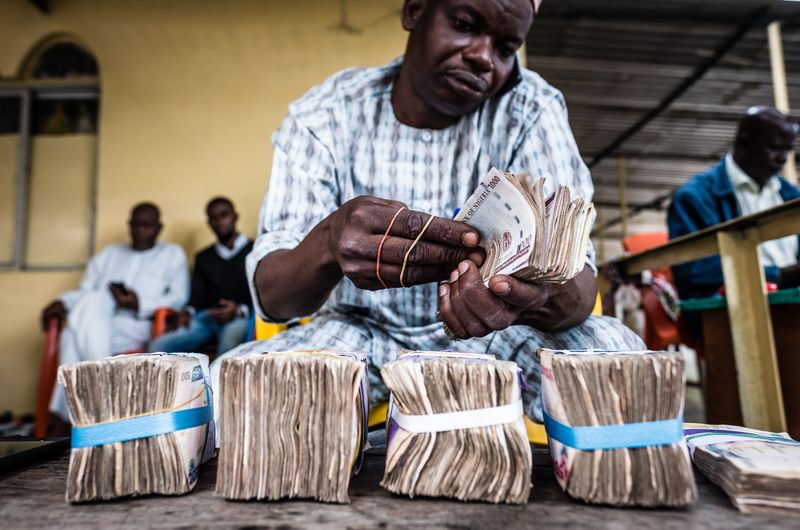Naira could rally below N1,000 Per U.S Dollar: Goldman Sachs

According to a Goldman Sachs Group Inc. economist, Nigeria’s naira could maintain its momentum as the world’s top-performing currency this month, but only if policymakers stay committed to their course.
Thank you for reading this post, don’t forget to subscribe!
In April alone, the naira has experienced a remarkable 12% rally against the dollar, building on its impressive 14% surge in March.
Factors such as capital inflows and interest rate hikes have contributed to its resurgence, helping to recover steep losses incurred due to two devaluations since June.
The recent upswing has propelled the naira to 1,230 per dollar at its latest official close, a significant improvement from its record low of 1,627 on March 8.Goldman economists, who previously forecasted the naira strengthening to 1,200 per dollar in 2024, now see potential for further advancement beyond that threshold.
This optimism follows a series of measures implemented by the central bank, including substantial interest rate hikes and initiatives to alleviate the scarcity of dollars in the local market.
Andrew Matheny of Goldman Sachs expressed confidence in the naira’s trajectory, stating that the currency could potentially reach levels below 1,000 per dollar.
However, despite the positive outlook, Goldman maintains its 12-month forecast of 1,200 per dollar due to uncertainties surrounding the sustainability of the reform efforts.
The recent currency measures are part of broader reforms initiated by President Bola Tinubu to revive Nigeria’s economy.
These reforms, which include the elimination of fuel subsidies, have led to a surge in inflation and exacerbated the cost-of-living crisis for Nigerians.
Despite the challenges, the naira has shown resilience, with the gap between the official and parallel market rates narrowing significantly. Governor Olayemi Cardoso, who assumed office in September, has been proactive in attracting foreign investment and clearing domestic dollar orders.
However, the central bank faces pressure to address inflation, which stood at a yearly rate of 31.7% in February.
Further rate hikes may be necessary, but they could hinder access to funds for businesses and impact competitiveness.
While the future of Nigeria’s economic reforms remains uncertain, Goldman’s Matheny emphasized the importance of the central bank maintaining credibility and stability.
As Nigeria navigates these challenges, the fate of its currency and economy hangs in the balance.




